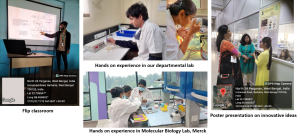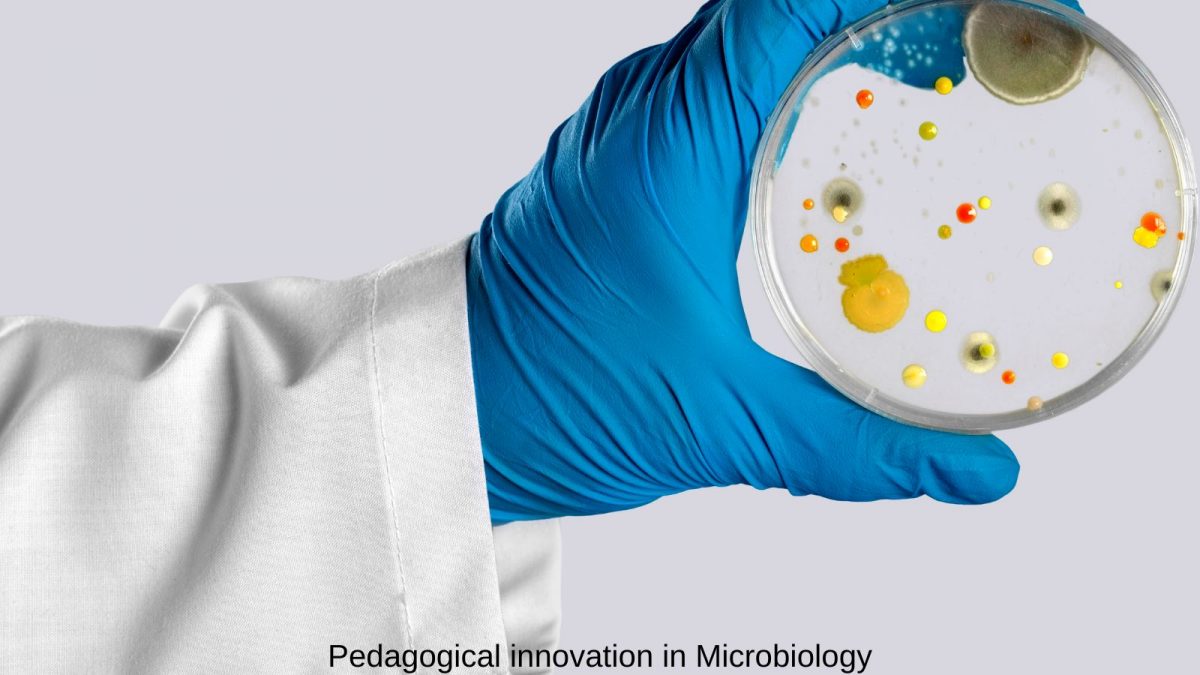
Teaching methodology is an ever-evolving process where the educator and the student continue to learn as they grow. Their exchange of knowledge and views in course of their growth paves the path for finding best ways to enrich the teaching-learning process. The educator comes across heterogeneous batches of learners whose requirement changes every year. While some students learn fast, some others are slow ones. While some prefer to memorize lessons, some want to understand the concept, again some others rely on illustrations and other elaborations, preferably tangible ones, to comprehend what a teacher teaches.
Traditional learning has long been the staple of educational systems globally, imparting knowledge through structured lessons, supported by textbooks and other resources in classrooms as well as in laboratories sometimes. However it is no longer sufficient to meet the diversified requirement of a class of students nowadays.
Challenges faced in traditional learning models
Although Traditional learning models are proficient in structuring a basic understanding for students, there are limitations as follows:
- Lecture-based methods safeguard the consistent flow of information, but it may not be appealing to the diverse group of students with different learning styles, rather it may promote passive learning.
- Model of traditional learning often fail to bridge the gap between theoretical knowledge and its practical application in the real world (or instance, requirement in industries). A student may perform well in exams but struggle to cope up with the workplace challenges due to dearth of skills essential for employability.
- Traditional learning being generic, it provides students exposure to wide range of skills and knowledge that will be advantageous for any career they choose related to the subject they learn. However, in absence of real-life exposure to genuine work-based projects, it often becomes challenging for the students to specify their actual expectations from their careers. So often manpower gets wasted as either truly deserving candidates miss to make the right choice in time or because of recruitment of undeserving candidates in inappropriate positions.
- Whatever may be the efforts of the educators or the learners a lack of connectivity prevails with a certain fraction of students in a batch every time, resulting in emergence of discrepancy between slow-learners and fast learners and the difference becomes difficult to be resolved.
Solution for the limitations of traditional learning models:
If educational institutions implement experiential practices into their curriculum early on, then students could gain a primary preview of their future careers, test theories, make vital connections, and refine skills in environments reflecting their post-graduate destinations.
This career clarity is of prime importance to ensure that students love what they do and identify the skills they will need in professional lives.
Therefore traditional teaching needs to be complemented with experiential learning that emphasizes on hands-on experience and real-world application. It is similar to the “show and tell” activities of students of primary school where traditional learning reflects the telling component and experiential learning resembles the showing part. Both components are mutually exclusive in imparting knowledge, but if applied in tandem, they are sure to make the learning process an enriched one catering the need of every type of students. This is particularly significant for wet lab based subjects like microbiology which has led to incorporation of curriculum revolution in microbiology education.
Table 1: Comparison of traditional learning and experiential learning:
|
Advantages |
Traditional learning |
Experiential learning |
|
A structured and systematic approach |
Bridges the gap between theory and real-world application |
|
|
Time-tested and widely accepted |
|
|
|
Disadvantages |
Can be passive in nature |
May require more resources to implement |
|
Sometimes, it may fall behind current industry demands |
Might be challenging to integrate into traditional curricula |
|
|
Might not cater to all learning styles |
Requires institutions to develop and maintain relationships with a diverse range of organizations |
Collaboration of traditional learning and experiential learning in Department of Biological Sciences, Adamas University:
Considering student interest as one of the topmost priorities, Department of Biological Sciences, School of Life Science and Biotechnology of Adamas University has amalgamated experiential learning with the time-honored approach of traditional learning for the full-fledged training of young scientific minds of aspiring microbiologists of both undergraduate and post-graduate programs.
Generally, the process of data analysis and interpretation followed by drawing conclusions to decide on next steps in any experiments is reserved for higher class students of undergraduate and post graduate programs. In our department, the educators encourage the students to think critically and participate in themed active learning activities in the classroom/ laboratories rather than taking mere observations or performing surveys. For instance, students are given a graph on microbial growth kinetics or enzyme kinetics from peer-reviewed journals to be interpreted that allows the students to not only understand the biological phenomena but also comprehend useful information from scientific articles. The C.R.E.A.T.E. method — Consider, Read, Elucidate the hypothesis, Analyze and interpret the data, and Think of the next Experiment (Hoskins et al. 2011, https://teachcreate.org/ ) has been adopted to encourage the students to gather knowledge from text books, interpret the essence of the chapters, apply the knowledge to explain unanswered questions in old experiments and find new ideas for new innovations. Alternatively, for medical microbiology and immunology, case studies are included to train their skill of critical thinking skills.

Figure 1: Representative photographs of different aspects of experiential learning in Microbiology in Adamas University
Due to time limitations during the semester, most of the undergraduate labs are unable to provide the necessary instruction on vital aspects of experimental sciences, like replication, sample size, reproducibility, and additional critical thinking required when designing experiment to answer biological questions. Department of Biological Sciences of Adamas University provides training in these prime components of experimentation through project works, dissertation and field works. Communication skill of the students are refined using tools like flip-learning, poster presentations, model making, platform presentation and other Moreover, as the first footfall for exposure to industries, networking is crucial in the competitive landscape of modern days. Industrial internship is a pivotal experiential strategy to prepare the students in navigating the real-time requirements of job market at present. In our department industrial internship is a mandatory component in curriculum of both undergraduate and postgraduate programs that allows the learners to assess their knowledge in action. Moreover, we attempt to elevate the learning experience through collaborations with pioneer industry partners, by incorporating industry relevant topics in curriculum (as suggested by industry experts present in panel of Board of studies of the department), organization of Industry series talks, workshops and introducing rel-life projects for the students to participate.
In microbiology research it is now common to use “omic” technologies to find answers to scientific questions. For that a thorough understanding of these technologies should be complemented with basic bioinformatics skills. Our department provides advanced training in bioinformatics using technology skills like R, Python etc.
.Postsecondary enrolments in the life science and health related fields are steadily increasing in which microbiology serves an important role in the curriculum. This has enhanced the opportunities for pedagogical innovation which will be key to addressing future demands of the students and their learning process.



